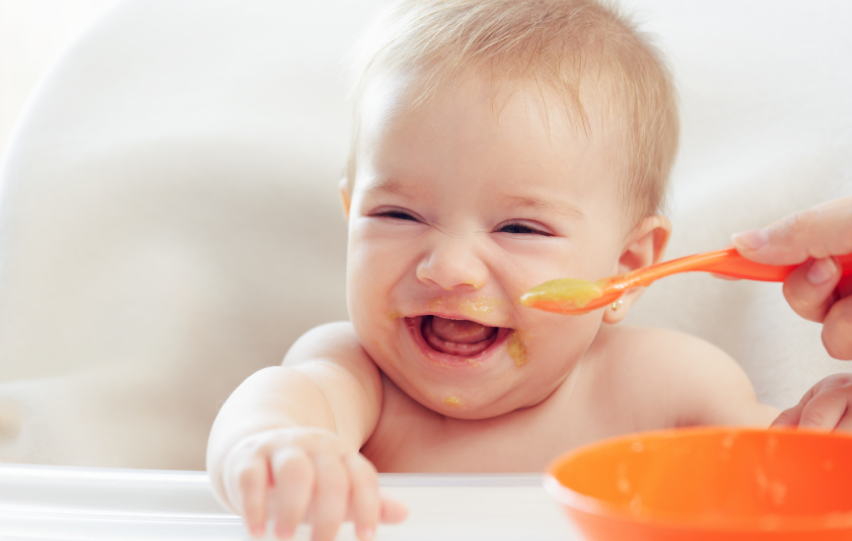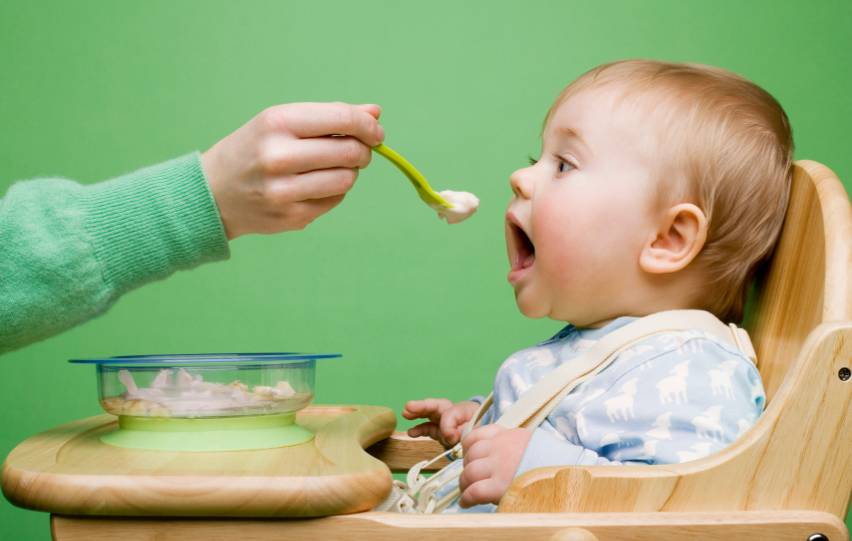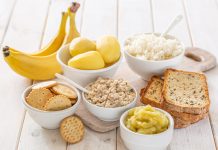Watching your child hit milestones is certainly exciting. Not only does it mean they’re growing before your very eyes, but it also means that they are ready to move on to advanced things. One of these milestones is eating baby food.
This time is marked by a barrage of new flavors, textures, and sensations for your child. From getting them familiar with the tangy taste of lemons to indulging them in sweet mangoes, it’s a fun time.
However, parents always wonder how old their baby should be before they can start eating baby food. If you’re wondering if it’s time for your little one to start solids, we’ve provided you with a few guidelines and timelines for doing so.

When to Start Baby Food
The American Academy of Pediatrics (AAP) states that parents should wait until their babies are six months old before introducing solids. This six-month period is geared toward parents who are practicing exclusive breastfeeding.
As parents start introducing baby food during the sixth month, mothers are still advised to continue breastfeeding their child until 12 months or a whole year. Beyond this, it is up to the mother’s discretion.
Previous studies, such as those from the American Academy of Allergy, Asthma, and Immunology (AAAAI) stated that babies aged four months may be introduced to baby food.
Signs Your Baby Is Ready
Wondering when to start baby food? Some of the developmental signs that can help you gauge if your baby’s ready for solid food is that they have head and neck strength. These are both essential to facilitate safe food consumption.
Apart from these, parents can also look for upper body strength and the lack of tongue-thrust reflex. This means that babies should be able to push their arms straight during tummy time and hold themselves upright.
More importantly, your infant should be showing interest in trying certain types of food. This can be in the form of them grabbing your food or staring at you while you are consuming these.
If your infant successfully exhibits these characteristics, only then can you confidently proceed to introduce baby food. Start by introducing single-ingredient foods that have no flavoring or seasoning.
What to Start With
You can start with pureed foods such as green beans, peas, broccoli, and avocados. For non-green items, you can also opt for rice or oats. After introducing each food item, observe if your baby has a reaction, such as a new rash, vomiting, or diarrhea.
After introducing green foods, you can move on to more complex carbohydrates such as squash, sweet potatoes, carrots, and the like. Then, introduce fruits such as apples, bananas, and pears last.
Dairy, peanut, egg, tree nuts, shellfish, and fish can be introduced as early as four to six months. However, only do this after less allergenic foods – such as oats, rice, and veggies – have been tolerated by your infant.
What to Do at 8 Months
By 8 to 10 months, babies are already more adept at eating smaller portions of finely-chopped food. These can range from vegetables, fruits, pasta, cheese, meat, crackers, and the like.
As they grow older and learn to grab food, this is the best time to try sticky and thicker foods such as yogurt or mashed potatoes.
Bear in mind, however, that you should still watch over your baby to prevent high-risk foods from harming them in any way.
A general rule of thumb would be to introduce more complex solids later on. Start with purees before moving on to chunks.

The Bottom Line
Learning about the dos and don’ts of when to start baby food is a life changer. Armed with this knowledge, you can now proceed to safely navigate the world of baby food and make your infant’s culinary journey a delightful one.







